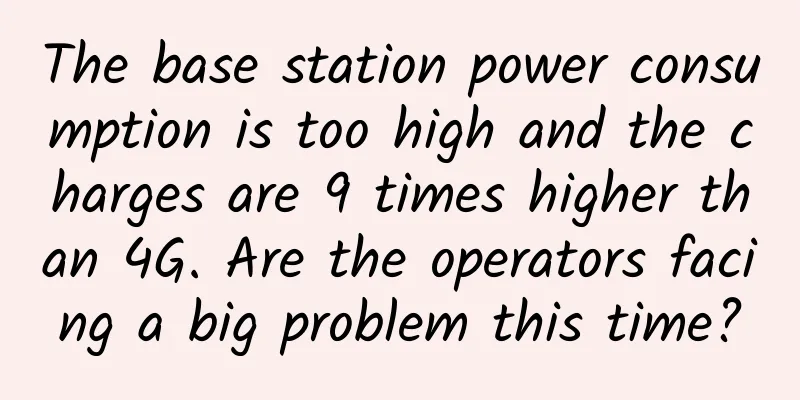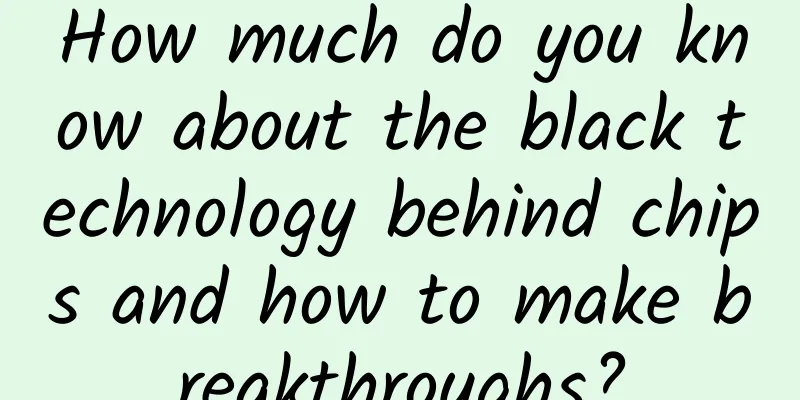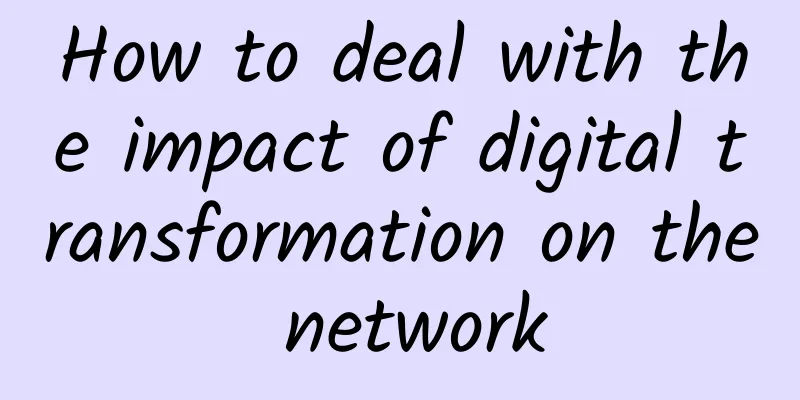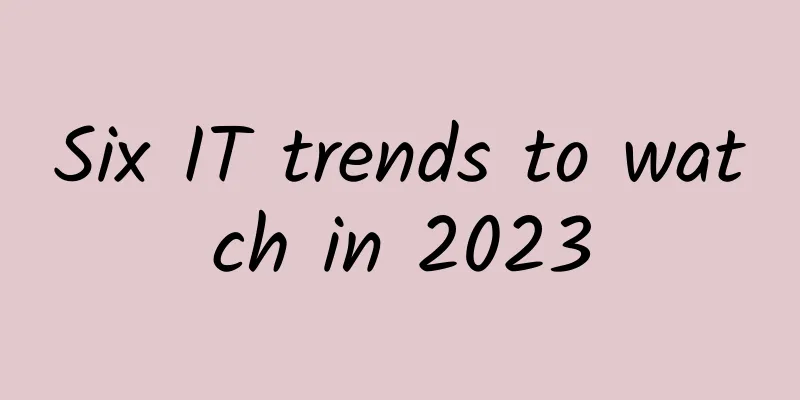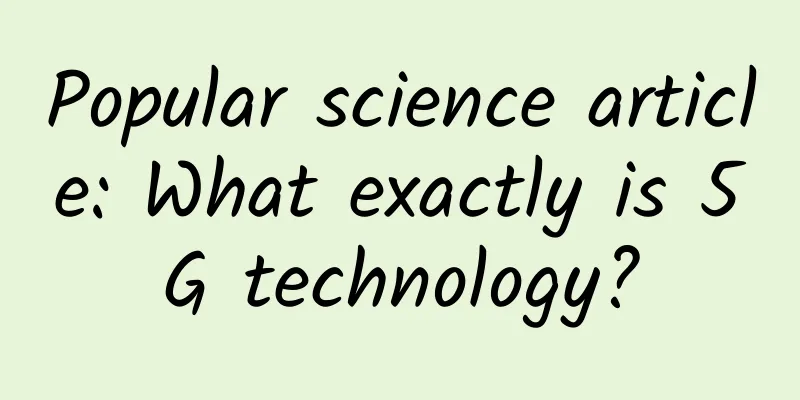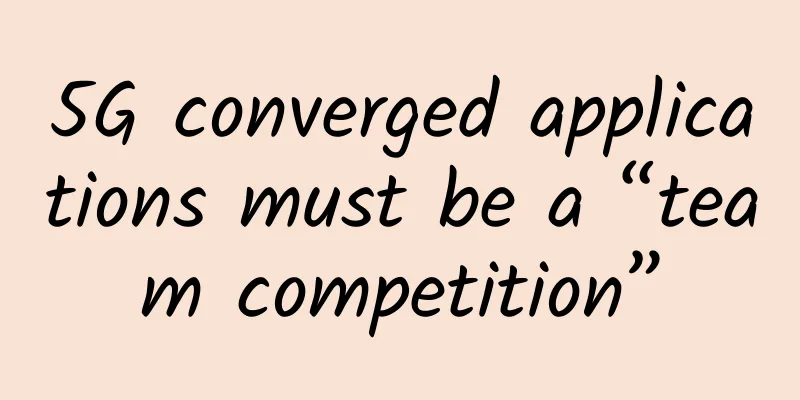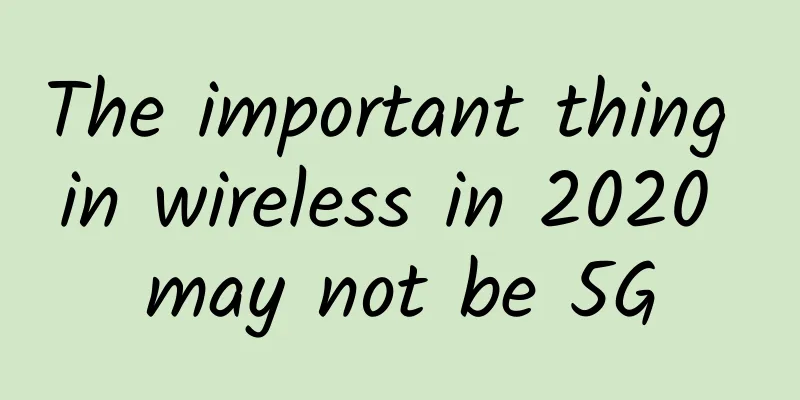The American Internet is about to undergo a major change: Is the protective umbrella Section 230 really going to disappear?
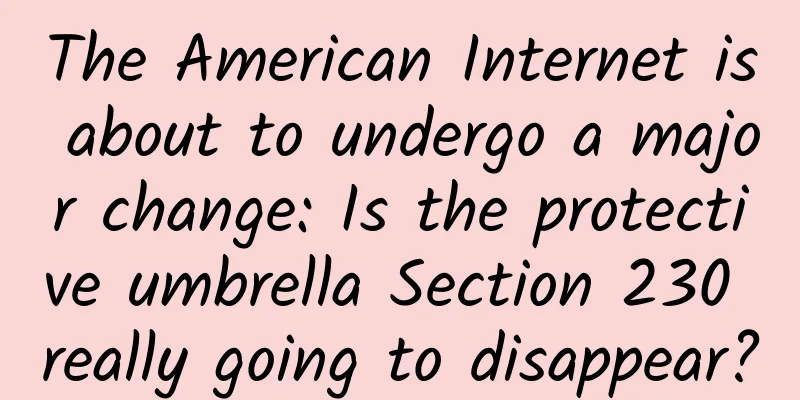
|
"Revoke 230!" US President Trump wrote on Twitter on May 29. On that day, he officially signed an executive order requiring the federal government to restrict social media's exemption clauses. Everyone knew that this was aimed at Twitter. That week, Twitter repeatedly labeled his tweets as "needs fact checking" and "glorifies violent content." The furious Trump directly threatened to shut down Twitter. Sina Technology Zheng Jun from Silicon Valley, USA Targeting Internet giantsAccording to the U.S. system of separation of powers, the president's executive orders cannot replace formal laws, but can only provide guidance on the executive branch's law enforcement. In other words, Trump's orders can only affect regulatory agencies such as the U.S. Department of Justice and the Federal Communications Commission, prompting them to formulate regulatory regulations for Internet companies, but they cannot be the basis for court judgments. Amending the law is the responsibility of the Senate and the House of Representatives, and the executive branch can only make suggestions. Of course, this is just the first step of Trump's retaliation. Three weeks later, the second shoe finally dropped. The U.S. Department of Justice released a 25-page opinion yesterday, calling on the U.S. Congress to amend Section 230 of the 1996 Communications Standards Act to limit the immunity protection for Internet companies. The opinion believes that some technology companies have become the companies with the highest market value in the United States, and the current Internet service industry is completely different from the situation when Section 230 was introduced in 1996. The time is ripe to amend the immunity clauses for Internet companies. On the same day, five Republican senators jointly drafted a new bill, the Limiting Section 230 Immunity to Good Samaritans Act, proposing to cancel the immunity of large Internet companies under Section 230 unless they operate in "good faith." These senators are all loyal allies of Trump, including Mark Rubio of Florida and Tom Cotton of Arkansas. According to Axios, they proposed this bill at the direct instruction of Trump. Marsha Blackburn, a Republican senator from Tennessee, said directly, "The era of self-regulation in Silicon Valley is over. We will no longer let large technology companies hide behind this exemption clause and suppress competitors or freedom of speech." Josh Hawley, a Republican senator from Missouri who wrote the bill, said in a statement that large technology companies such as Twitter, Facebook and Google have long used their power to silence conservative political speech without providing any basis for users. Section 230 has been expanded and rewritten by various courts, giving these technology companies the power to review speech without being held accountable. Congress should take action to ensure that bad companies that censor and silence the speech of their opponents cannot enjoy this exemption. The confrontation between Twitter and Trump has once again made a 24-year-old basic law governing the US Internet a focus of public opinion. This 26-word legal provision is also known as the cornerstone of the US Internet. Although the US political circles have been discussing this provision in the past few years, the confrontation between Twitter and Trump is undoubtedly the direct impetus for this series of legislative actions. What exactly is Section 230? Section 230 of the 1996 U.S. Communications Decency Act states that "no provider or user of an interactive computer service should be treated as the publisher or speaker of any information provided by another information content provider." In other words, these Internet companies do not have to be held responsible for the content posted by third parties or users on their platforms. Why is such a protective umbrella given to Internet companies? When the bill was first drafted in 1995, the US Internet industry was just starting out. Microsoft launched the IE browser to fight Netscape, Amazon and Yahoo were just one year old, and the two founders of Google had just met on the Stanford campus. Some senators began to notice the various pornographic contents on the Internet and proposed the Communications Standards Act to regulate the Internet as an amendment to the Federal Communications Act. According to the initial Senate version, network operators will face huge fines or even imprisonment if they intentionally display obscene and other inappropriate content to teenagers on their websites. Obviously, this is treating Internet platforms as traditional media such as television and radio. If this regulatory bill is passed, then the newly emerging Internet companies must be responsible for the third-party content that appears on their platforms; they must strictly review the content on the Internet, otherwise they may face various lawsuits and penalties. This means that the development of the emerging Internet industry will be greatly restricted. A lawsuit in 1995 also stimulated the emerging Internet industry and free speech rights groups. An anonymous user accused Wall Street broker Stratton Oakmont of fraud on the Internet bulletin board Prodigy, which then sued Prodigy for defamation. When sentencing, a New York judge regarded the Internet platform as a publisher and determined that Prodigy needed to be responsible for the speech of third-party users on its platform. (In fact, this brokerage firm is indeed a scammer, and their founder Jordan Belfort is the prototype of the male protagonist in the movie "The Wolf of Wall Street.") Free speech rights groups and the Internet industry, which were highly nervous about the Internet regulation bill, joined forces and successfully lobbied two federal congressmen from California and Oregon to include a Good Samaritan exemption clause in the Internet Freedom and Family Empowerment Act, a House Internet regulation bill they drafted, authorizing Internet companies to manage their own online platforms. This is the origin of Section 230. In the end, the bills of the two houses were merged into the Communications Standards Act of 1996. Is it time to revise?Section 230 actually has two meanings: Internet companies are not responsible for third-party information on their platforms, and they are not responsible for their good-faith deletion of platform content. The original intention of this clause is to encourage Internet companies to take the initiative to self-monitor, purify the network environment, and avoid being hit by a steady stream of lawsuits when they are still in their infancy. Although the US Supreme Court rejected most of the anti-pornography provisions of the Communications Decency Act on the grounds of "violating freedom of speech" in subsequent lawsuits, Section 230 has been preserved to this day and has become the biggest umbrella for Internet companies. This legal provision, which consists of only 26 words in English, has created a tolerant regulatory environment for the rapid development of the US Internet industry and paved the way for the subsequent rise of social media. Over the past 24 years, this legal provision has repeatedly protected Internet companies and helped them escape unscathed from many defamation and fraud-related lawsuits. In addition, Internet companies are able to delete content and accounts that they deem inappropriate in accordance with their own rules, free from lawsuits from users. Eric Goldman, a law professor at Santa Clara University in Silicon Valley, even believes that Section 230 created the modern Internet. Last week, a lawsuit in the United States was the best example of Section 230's immunity protection. Republican Congressman Devin Nunes sued several anonymous Twitter users for defamation and also sued Twitter to reveal the real identities of the anonymous accounts. The federal judge rejected Nunes' request, citing Section 230. Although Nunes' lawyer cited Trump's executive order, the federal judge made it clear that the president's executive order could not change existing laws. Twitter still enjoys immunity until Congress amends the law. After supporting and protecting the growth of the Internet industry, this exemption clause has also been criticized. In the past few years, whether it is large Internet platforms such as Facebook and Twitter or small Internet platforms such as 4Chan and Gab, they are full of hate speech, false information, conspiracy theories and other inappropriate content. There are even terrorists who have announced and live-broadcasted shootings on social platforms. These extreme contents have put social media under greater regulatory pressure than ever before. Take Gab, a social media platform known as the "Twitter of Conservatives," for example. It is home to a large number of right-wing conservatives who advocate "free speech," including white supremacists. The site is full of blatant racial rhetoric and conspiracy theories. In 2018, the Pittsburgh, Pennsylvania, synagogue shooting left 11 people dead. The 46-year-old white murderer had long been active on Gab, criticizing Jews and even announcing his own shooting. But when the Pennsylvania prosecutor announced that it would investigate Gab, Gab directly hit back at the prosecutor with Section 230. However, combating crimes such as human trafficking and sexual crimes does not fall within the scope of exemption under Section 230. Over the past two years, the U.S. Congress has held several hearings and discussions on Section 230. The Anti-Sex Trafficking Act passed in 2018 opened a gap. This law clearly stipulates that Internet companies have the responsibility to report and remove sex trafficking (trafficking in people for sexual exploitation) on their online platforms, otherwise they will face penalties under relevant laws. Removing the liability exemption would be counterproductiveThe plan of Republican senators and the Department of Justice to amend the 230 exemption clause was immediately strongly opposed by Internet companies. Twitter said that canceling the protection would only threaten the future of online speech and Internet freedom. A Facebook spokesperson said, "The Trump administration believes that we have reviewed too much content, and the Democrats and human rights organizations say that we have not done enough. The existence of Section 230 allows us to focus on the most important things: combating harmful content and protecting political speech." Daniel Castro, vice president of the Information Technology Innovation Foundation (ITIF), an independent Internet industry research organization in the United States, issued a statement to Sina Technology via email, saying that social media companies provide an important opinion platform for many users with different political stances, and it is necessary to take content review measures to limit false information, hate speech and other offensive content. However, this bill will expose social media services to a large number of lawsuits, which will seriously undermine their ability and willingness to effectively review their own platforms. Castro explained that while the bill is unlikely to gain widespread support, it is yet another attempt to coerce Internet companies, threatening to undermine the legal foundation of the Internet economy - the intermediary liability protection clause, thereby preventing them from adopting fair and reasonable online content review policies. Internet reform is up for debate, but such reform should focus on reducing illegal actions rather than restricting legal speech. Daphne Keller, director of the platform regulation project at Stanford University's Cyber Policy Center, believes that the Trump administration's move will only severely limit the platform's ability to review content and respond quickly to emerging issues. Carl Szabo, vice president of NetChoice, a technology industry rights organization, said that this is a coordinated attack by the Trump administration on the technology industry, and they intend to bypass the First Amendment of freedom of speech. What would happen if there is no protection under Section 230? Internet companies will face endless lawsuits. If the bills proposed by several senators are passed, Internet users can sue directly or in class action, with each user claiming $5,000 plus attorney fees. Or, in order to avoid lawsuits, Internet companies will significantly tighten the standards for speech review and delete all potentially controversial speech on their platforms. Either result will directly damage the development of the Internet. However, the US Internet giants will not give up easily. Every attempt to amend Section 230 will be firmly resisted by Internet companies and Internet rights protection organizations. Today, the Internet is the most powerful industry in the United States. Giants such as Google and Facebook invest tens of millions of dollars in lobbying Congress every year, and they also have their own strong political influence. Both groups are unhappy with the InternetAlthough the revision of the 230 exemption clause was mainly driven by conservative political forces, liberals also advocated exerting pressure on the Internet industry and repeatedly used the abolition of the 230 clause to deter Internet companies. Although the two factions in American society are currently fighting fiercely, they have a strange consensus on the Internet industry: the current Internet has many problems and should indeed be regulated. Both factions are strongly dissatisfied with social media, but for completely different reasons: conservatives accuse Twitter and Facebook of suppressing conservative voices for a long time, and their "enforcement standards" for deleting posts and canceling accounts are completely biased towards liberals; but liberals believe that these social media have not done enough, and they have long allowed the spread of false information on the platform and have not taken effective measures to eliminate harmful information. For example, after Twitter labeled Trump's tweets, it immediately became the target of Republican attacks for "suppressing free speech", while the Democrats believed that Twitter's content review standards should be more thorough. Facebook's reluctance to take action on Trump's controversial tweets has put Zuckerberg under tremendous public and political pressure. Liberals have always believed that Facebook was responsible for Trump's unexpected election in 2016, when Facebook turned a blind eye to various false information about Hillary and the Democratic Party. It is worth noting that neither the bill proposed by Republican senators nor the proposal of the Ministry of Justice explicitly requires the complete removal of the exemption protection of Internet companies, but rather "good performance" as a binding requirement. What is good faith? This is undoubtedly a subjective standard determined by interests and positions. According to the draft of the Republican congressman, Internet companies shall not discriminate against users when enforcing the terms of service. If Twitter continues to delete controversial conservative comments and label Trump's controversial tweets in the future, then according to the understanding of Republican lawmakers, this will be considered that Twitter is suppressing the freedom of speech of conservatives, and they do not think Twitter is eligible for the exemption clause. However, when Section 230 was first formulated, it did not require Internet companies to remain neutral in their political stance. The free speech amendment of the US Constitution restricts the government's public power, not private commercial companies. In fact, Republican Senator Hawley, who submitted the bill, also proposed a similar bill last year, requiring large Internet companies with more than 30 million users in the United States or more than 300 million users worldwide to remain politically neutral in order to enjoy the protection of Section 230. According to his idea, the power to evaluate whether Internet companies maintain content review neutrality should be given to the Federal Communications Commission. However, even David French, a commentator for the conservative American media National Review, believes that the implementation of this standard will undoubtedly conflict directly with the constitutional amendment that prohibits the government from interfering with freedom of speech. Democratic Party attitude is keyGiven that the Republicans currently hold a dominant position in the Senate, this bill proposed by several Republican lawmakers at the behest of Trump may not have much difficulty passing the Senate, but whether it will be successfully passed in the House of Representatives depends entirely on the attitude of Pelosi and other Democrats. Only when both houses reach a complete consensus and pass a bill can it be sent to the president for signature and officially become law. Last year, Democratic congressional leader Pelosi repeatedly warned that the Section 230 exemption clause was intended to be a gift to support the growth of technology companies, but they should have a greater sense of social responsibility, otherwise this clause may be cancelled. In an interview with the New York Times in January this year, Democratic presidential candidate Biden made it clear that Section 230 gave Facebook and other social platforms an umbrella of protection, and they should not be exempt from lawsuits. Just this week, Pelosi slammed Google and Facebook for using false information and inflammatory speech to gain traffic and benefit from it. Pelosi called on congressional lawmakers, technology company employees, advertisers and the public to work together to pressure social media to stop spreading false and dangerous information. "We must send a clear message to social media executives: You are responsible for this." Judging from the current attitude, although Pelosi from Silicon Valley San Francisco is dissatisfied with the current situation of Internet companies, she will not agree with the Trump camp's legislative move with obvious political purposes. After all, after Trump threatened to retaliate against Twitter, Pelosi once publicly condemned this behavior. Even if the House of Representatives issues a bill to amend Section 230, it will be significantly different from the version of the Senate Republicans. It may include a hard requirement to delete false information, but will not include political neutrality assessments. After all, the vast majority of Internet companies in the United States tend to be liberal values. Obviously, both parties use the "cancellation of Section 230 exemption clause" as a means of threatening and pressuring Internet companies, like a "Sword of Damocles" hanging over their heads. However, the two parties have completely different expectations and standards for Internet companies. There are still four and a half months to go before this year's election, and there is a high probability that controversial events and speeches will occur. It is difficult for Internet companies to satisfy both parties at the same time. Just today, Facebook deleted a political advertisement placed by the Trump camp because it contained a Nazi-era symbol. However, further revisions to Section 230 are clearly inevitable. Following the 2018 legislation that Internet companies are not exempt from liability for content related to sex trade and human trafficking, the U.S. Congress may further enact laws on speech related to terrorism, human rights violations, etc. in the future, requiring Internet companies to bear greater responsibility for these harmful content. Whatever the outcome of this year’s election, the Wild West era of social media is over. |
<<: Aruba Launches ArubaESP, the Industry’s First Cloud-Native Platform for the Intelligent Edge
>>: 2G/3G network withdrawal and user migration to 4G
Recommend
T-Mobile plans to provide super-capacity 5G network within three years
According to foreign media reports, T-Mobile plan...
6 top data center education and certifications IT professionals need
Nowadays, many IT professionals are committed to ...
Maxthon Host: Germany CU2 low latency large bandwidth 20% off, 2GB memory package monthly payment 60 yuan
Maxthon Hosting has been very low-key for a long ...
eSIM card, where is the future?
On March 29, 2019, China Unicom held a joint firs...
Aruba changes the rules of the game to drive three major changes in network management
When the first iPhone was released in 2007, Steve...
Smart city becomes the new name card of Lanzhou New District: new momentum for the new district breeds new development
[51CTO.com original article] Not long ago, the 20...
Who will be the Internet of Things "giant"? 2017 World Internet of Things Expo closed
【51CTO.com original article】 On September 13, 201...
Ruizhi Big Data: Injecting Intelligent Genes into Dual-State IT
In the summer of 2019, a set of data about China&...
Top 10 acquisitions that changed the Internet industry in 2016
【51CTO.com Quick Translation】 In the Internet ind...
Seven storage mistakes data centers make during consolidation
Mergers and acquisitions are commonplace in today...
RepriseHosting: 30% off Seattle servers, L5640/16GB/1TB/10TB starting at $27/month
The tribe has shared information about RepriseHos...
Microsoft Accelerator Poetry Heart starts its journey to build an empathy platform with technological innovation
On March 15, 2018, the 11th Microsoft Accelerator...
Redefining the Network: Navigating the World of SD-WAN
In the evolving enterprise network environment, c...
Foxit Kunpeng OFD technology debuts at the 7th Military Expo to help the information construction of party, government and military documents
From July 5 to 7, 2021, the "9th China Comma...

